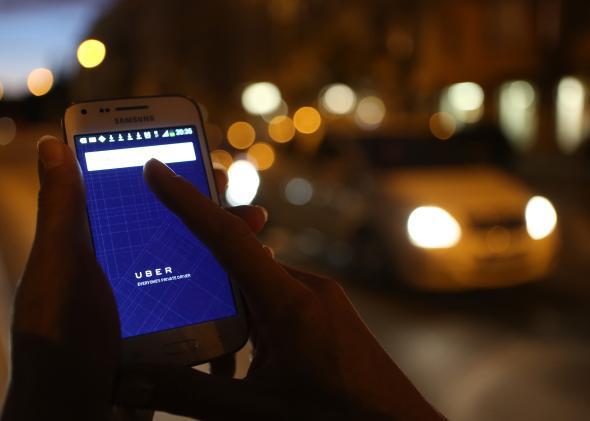Remember when taxi drivers across Europe protested Uber in June? The always-smooth ride-sharing company seized on the chaos as a great marketing opportunity. It extended services in London and took out full-page ads in evening papers. It promoted steep discounts of up to 50 percent on rides. By the end of the day, Uber was reporting an 850 percent jump in new users in London alone.
Now as Germany seeks to halt Uber, the company is once again displaying its aptitude for turning a red light into a green one. In a short post on its blog this morning, Uber claimed that sign-ups across Germany more than tripled in the 24 hours since a Frankfurt court declared it was engaging in unfair competition with the local taxi industry and placed a ban on UberPop, a peer-to-peer transportation service. Sign-ups spiked the most in Hamburg (up 590 percent) followed by Düsseldorf (up 518 percent) and Munich (up 329 percent). Even in Frankfurt, the city where the ban originated, sign-ups are up 228 percent, according to Uber’s data.
Looking at those figures, it’s small wonder why Uber has repeatedly pursued rapid and aggressive expansion in blatant defiance of local authorities. The basic logic is that people need to try Uber to know they want to have Uber—and once they know they want Uber, the demand is hard to suppress. Banking on that helped Uber to overcome a cease-and-desist order in California several years ago and to clear similar hurdles in New York and D.C. Uber launched in Germany in early 2013 and describes the country as one of its “fastest growing markets” in Europe. That means Germans have already had plenty of time to try Uber and realize they want to keep it around. And if that’s that case, even stiff regulation is going to have a hard time stopping it.
